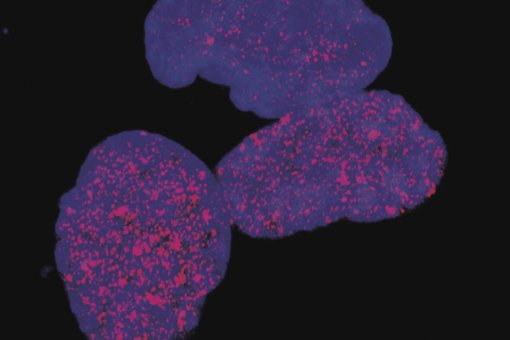Images
Participants




Contact

The Molecular Modelling and Bioinformatics lab, headed by Dr. Modesto Orozco, presents BioExcel Building Blocks Workflows (BioBB-Wfs) in the journal Nucleic Acids Research.
This highly intuitive and interactive graphical user interface helps the scientific community with the most common and repetitive processes of biomolecular simulations.
Barcelona, 13 July 2022 - Originated in the late 1970s, the field of Molecular Dynamics (MD) is devoted to building a molecular-level understanding of biology. In this regard, this field uses theoretical methods to analyse, model, and predict structures, mechanisms, dynamics, and flexibility properties of biomolecules (the chemical compounds found in living organisms).
Described as the ‘computational microscope for molecular biology’, MD provides insights into mechanisms and processes that are not directly accessible through experiments. Moreover, it is pivotal in guiding the drug discovery and design process.
Although simulation times are now close to biologically relevant ones, the practical use of MD continues to be hindered by a steep learning curve and a tedious series of actions on the part of the user.
To address this obstacle, the Molecular Modelling and Dynamics lab at IRB Barcelona, headed by Dr. Modesto Orozco, has launched BioExcel Building Blocks Workflows (BioBB-Wfs). Presented in the journal Nucleic Acids Research, this tool takes advantage of the power of new hardware, web technologies, and network bandwidth to bring biomolecular simulations closer to the scientific community.
The BioBB-Wfs platform is a web-based graphical user interface (GUI). This innovative tool offers users a set of trustable pre-configured workflows to perform transversal biomolecular studies.
This tool allows both non-experts and advanced users to launch computationally demanding processes remotely. The sophisticated GUI allows users to prepare and run simulation studies and offers them a high level of interactivity, helping them perform the tasks efficiently, and ensuring reproducibility.
The design and development of BioBB-Wfs started five years ago. The tool was devised as an update and extension of MDWeb, a web-based platform previously developed by the group. Of note, although MDWeb was developed 10 years ago, it continues to receive >20,000 visits a month—a figure that reflects the high demand for MD simulations.
The BioBB-Wfs platform is powered by the BioExcel Building Blocks library, developed within the BioExcel Centre of Excellence (BioExcel CoE) (in which IRB Barcelona is one of the main partners). This library is regularly updated, with new releases every three months.
The BioBB-Wfs platform has been developed thanks to the help of BioExcel CoE. Aiming to embed extreme-scale computing at the heart of Life Science research, BioExcel CoE started as an EU H2020-funded project in 2015, continued its second phase in 2019, and is now preparing for its third phase, possibly starting in 2023.
Related article:
BioExcel Building Blocks Workflows (BioBB-Wfs), an integrated web-based platform for biomolecular simulations.
Genís Bayarri, Pau Andrio, Adam Hospital, Modesto Orozco, Josep Lluís Gelpí
Nucleic Acids Research, Volume 50, Issue W1, 5 July 2022, Pages W99–W107, https://doi.org/10.1093/nar/gkac380
About IRB Barcelona
The Institute for Research in Biomedicine (IRB Barcelona) pursues a society free of disease. To this end, it conducts multidisciplinary research of excellence to cure cancer and other diseases linked to ageing. It establishes technology transfer agreements with the pharmaceutical industry and major hospitals to bring research results closer to society, and organises a range of science outreach activities to engage the public in an open dialogue. IRB Barcelona is an international centre that hosts 400 researchers and more than 30 nationalities. Recognised as a Severo Ochoa Centre of Excellence since 2011, IRB Barcelona is a CERCA centre and member of the Barcelona Institute of Science and Technology (BIST).




